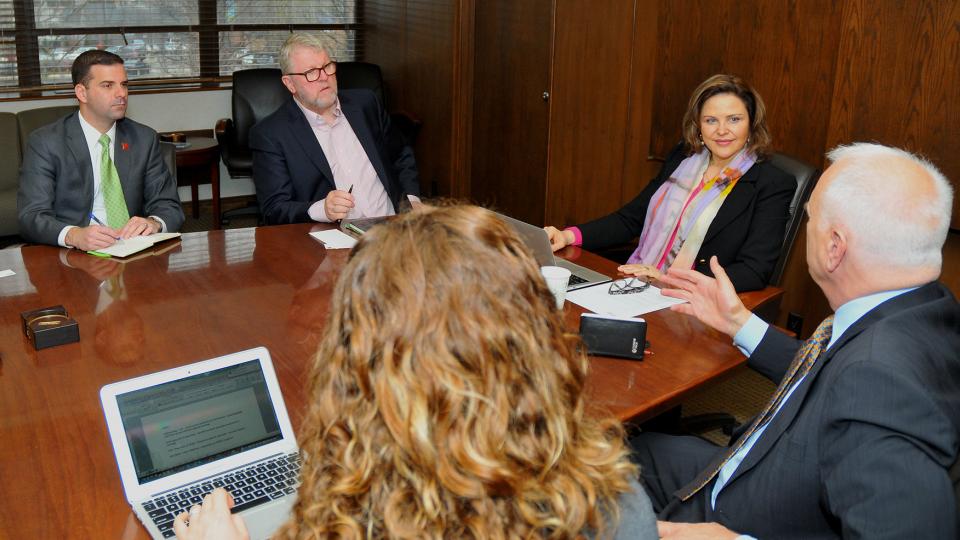
A weeklong residence by a Brazilian professor may help expand international opportunities available at UNL.
Liane Hentschke, a professor of music education and senior adviser to the rector on strategic projects at the Federal University of Rio Grande do Sol in Porto Alegre, Brazil, spent the week of April 5-10 in residence within UNL's Glenn Korff School of Music. The experience — which included working alongside UNL faculty, teaching graduate and undergraduate classes, sitting in on a doctoral defense, and meeting with campus administrators — left a positive impression.
"There is great potential for collaboration as UNL and Brazil have many things in common," Hentschke said. "Especially in areas of agriculture, law, early childhood development, teaching, business, marketing and, of course, music."
John Richmond, director of the Glenn Korff School of Music, extended the residency invitation to Hetnschke during a UNL delegation's visit to Brazil in October. The two have worked together for nearly 20 years through the International Society for Music Education. They also have doctorates in music education and have crossed paths through research and related programming.
"I encouraged Professor Hentschke to consider coming to UNL for a campus visit to meet our faculty and students, and to consider promising ways our two universities might partner together," Richmond said. "It has become clear that there are interesting opportunities among our music education faculties and doctoral students to work together in the months ahead."
Hentschke also worked previously as director of international cooperation at the National Council for Scientific Technological Development, Brazil's counterpart to the National Science Foundation. Her research interests include the areas of teacher education, formal and informal music education, and motivation to learn and teach music.
"Liane brings a unique perspective and experience with the Brazilian government and how it works," said Tom Farrell, senior adviser to the chancellor on international affairs. "Along with developing ties with music, we hope she can help us expand partnerships, research collaborations and opportunities for faculty and student exchanges with Brazil."
Brazil is one of eight nations UNL has identified as strategic priorities for the development of international partnerships.
David Wilson, senior international officer and associate vice chancellor for academic affairs, said the Federal University of Rio Grande do Sul — where Hentschke teaches — is one of UNL's primary institutional partners in Brazil.
“UFRGS is consistently in the top five overall of Brazilian universities and was recently named the number one law school in the country,” Wilson said.
Wilson will lead a delegation to UFRGS later in April to discuss potential partnerships in early childhood education research. Also, the two universities are developing a program that will allow UNL Spanish-speaking students to learn Portuguese, and a delegation of 22 students from the College of Business Administration and College of Education and Human Sciences will spend four weeks at UFRGS in the summer.
For more information about international engagement at UNL, visit http://international.unl.edu/.
--Troy Fedderson, University Communications.